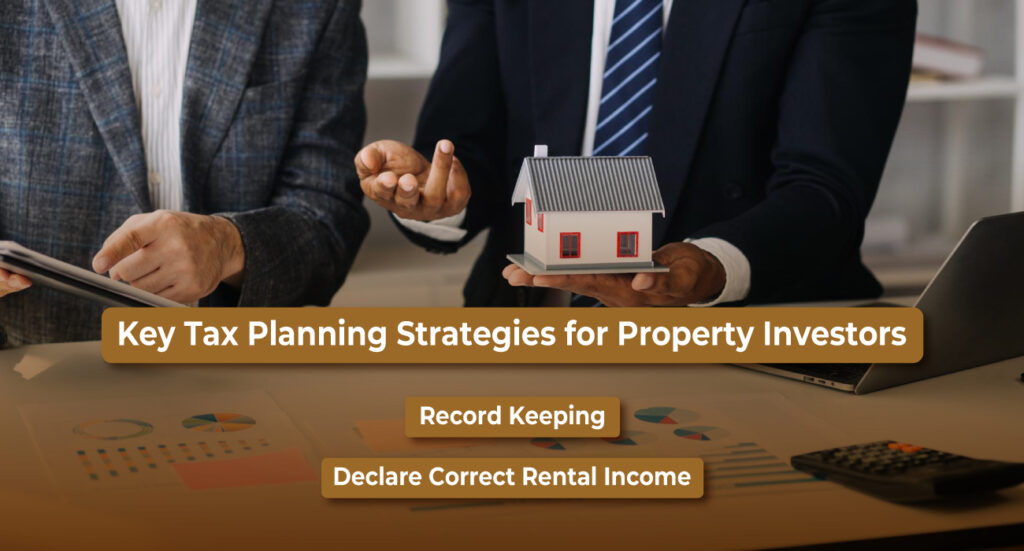2024 Tax Deduction Guide for Property Investors
As the 2024 financial year comes to a close, property investors in Australia are navigating a landscape filled with both challenges and opportunities. With rising inflation and high interest rates driven by the Reserve Bank’s economic measures, financial pressures are mounting. Additionally, the shift from interest-only loans to principal-and-interest repayments is significantly increasing loan commitments, doubling repayment amounts for many and intensifying financial strain. Though rent increases offer some relief, effective tax management is crucial to prevent these financial pressures from escalating further.
In this guide, we provide property investors with actionable insights and practical strategies to reduce tax burdens and improve financial health. Whether you own residential, commercial, or mixed-use properties, our aim is to equip you with the knowledge to make informed decisions that align with your long-term financial goals.

Key Tax Planning Strategies for Property Investors
Record Keeping
Keep detailed records of every expense claim to substantiate tax deductions. The ATO requires proof of expenses, such as bank statements for interest claims, for up to five years from the date you lodge your tax return.
Note: Keep expense records for at least five years to substantiate tax deductions.
Declare Correct Rental Income
Incorrect reporting of rental income is a common issue among property investors. Rental income should be reported based on the property’s legal ownership. For instance, if you own 50% of a property, you should report 50% of the income, regardless of how much is deposited into your account.
Note: Report rental income based on your ownership percentage.
Claim Expenses Even When Property Is Not Rented
You can claim ongoing expenses if the property is genuinely available for rent, even if it didn’t earn rental income. This includes bank charges, loan interest, body corporate fees, council rates, insurance, land tax, and depreciation.
Note: Claim ongoing expenses if the property is genuinely available for rent, even without rental income.

Claiming Expenses
Most expenses related to your investment property are tax deductible, including advertising for tenants, loan interest, council and water rates, landlord and building insurance, land tax, letting fees, property agent fees, body corporate fees, depreciation, and the cost of hiring a quantity surveyor to prepare a depreciation schedule.
Note: Most investment property expenses are tax deductible, except for purchase-related costs and capital expenditures.
Interest & Borrowing Expenses
Interest on loans used to purchase income-producing properties is tax deductible. However, if you use an equity loan taken against your investment property for personal purposes, it won’t be tax deductible. Additionally, borrowing expenses like loan establishment fees and lenders mortgage insurance (LMI) can be amortized over five years if they exceed $100.
Note: The loan or equity withdrawal must be used for an income-producing asset to make the interest tax deductible.

Prepaid Expenses
You can claim deductions for prepaid non-business expenses if they are for a period of 12 months or less and do not extend beyond the next financial year. This includes loan interest, council rates, and insurance premiums.
Note: You can claim tax deductions for prepaid expenses if they cover 12 months or less and do not extend beyond the next financial year.
Repairs and Maintenance
Eligible repairs and maintenance expenses related to your investment property are tax deductible. This includes painting, conditioning gutters, maintaining plumbing, repairing electrical appliances, mending leaks, and replacing broken parts of fences or windows.
Note: Repairs to address any wear and tear caused by your tenants are tax deductible.
Delaying Initial Repairs
Expenses for initial repairs of existing damages when you bought the property are not eligible for immediate tax deduction. These expenses may be claimed as a capital works deduction over several years and are used to calculate your capital gain or capital loss when you sell the property.
Note: Initial repairs made immediately after settlement and before renting the property are not immediately tax deductible.
Depreciation
Depreciation is one of the most overlooked tax deductions for investment properties. You can claim depreciation for the wear and tear of your assets as they age. This includes Capital Works (Division 43) for second-hand properties and new plant and equipment for off-the-plan properties.
Note: Don’t miss out on claiming depreciation for your investment property, especially for Capital Works (Division 43) and eligible new plant and equipment.
Capital Gain & Capital Loss
For capital gains tax (CGT) purposes, the exchange date of a contract triggers the reportable capital gain event. To balance gains with losses effectively, plan your asset sales to align capital gains and losses within the same financial year.
Notes:
- Align capital gains and losses within the same financial year to minimize your tax liability effectively.
- For CGT purposes, the exchange date, not the settlement date, triggers capital gain.
Implementing the Right Investment Structure
Choosing the right ownership structure is crucial for minimising tax, protecting assets, and reducing generational tax burdens. Consult property tax specialists to determine the best ownership structures like a Trust or a Company for your investment.
Note: A well-planned ownership structure can minimize your tax, protect your assets, and reduce generational tax burdens.
Conclusion
As the end of the financial year approaches, property investors must navigate complex tax obligations. By understanding the importance of declaring correct rental income, claiming ongoing expenses, maintaining thorough records, and leveraging various deductions, you can significantly improve your tax position for the 2024 financial year. Consult with property tax specialists to optimize your tax planning strategy and ensure your property investments are well-prepared for the financial year ahead.
For personalised tax planning advice, contact Investax Group. Our experts can provide invaluable guidance tailored to your specific circumstances, helping you make informed decisions that align with your long-term financial goals.
For a more detailed exploration, don’t miss our comprehensive tax planning toolkit, available for download on our website. This resource is designed to provide you with an in-depth understanding of how to optimize your tax strategies and secure your financial future.
General Advice Warning
The material on this page and on this website has been prepared for general information purposes only and not as specific advice to any particular person. Any advice contained on this page and on this website is General Advice and does not take into account any person’s particular investment objectives, financial situation and particular needs.
Before making an investment decision based on this advice you should consider, with or without the assistance of a securities adviser, whether it is appropriate to your particular investment needs, objectives and financial circumstances. In addition, the examples provided on this page and on this website are for illustrative purposes only.Although every effort has been made to verify the accuracy of the information contained on this page and on our website, Investax Group, its officers, representatives, employees and agents disclaim all liability [except for any liability which by law cannot be excluded), for any error, inaccuracy in, or omission from the information contained in this website or any loss or damage suffered by any person directly or indirectly through relying on this information.





